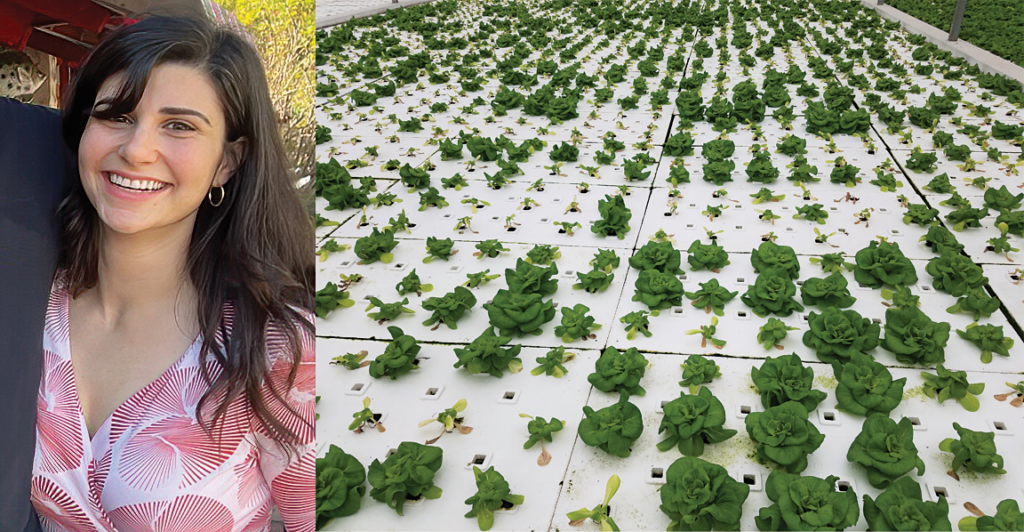The PDIC Welcomes a New Lab Member
go.ncsu.edu/readext?930429
en Español / em Português
El inglés es el idioma de control de esta página. En la medida en que haya algún conflicto entre la traducción al inglés y la traducción, el inglés prevalece.
Al hacer clic en el enlace de traducción se activa un servicio de traducción gratuito para convertir la página al español. Al igual que con cualquier traducción por Internet, la conversión no es sensible al contexto y puede que no traduzca el texto en su significado original. NC State Extension no garantiza la exactitud del texto traducido. Por favor, tenga en cuenta que algunas aplicaciones y/o servicios pueden no funcionar como se espera cuando se traducen.
Português
Inglês é o idioma de controle desta página. Na medida que haja algum conflito entre o texto original em Inglês e a tradução, o Inglês prevalece.
Ao clicar no link de tradução, um serviço gratuito de tradução será ativado para converter a página para o Português. Como em qualquer tradução pela internet, a conversão não é sensivel ao contexto e pode não ocorrer a tradução para o significado orginal. O serviço de Extensão da Carolina do Norte (NC State Extension) não garante a exatidão do texto traduzido. Por favor, observe que algumas funções ou serviços podem não funcionar como esperado após a tradução.
English
English is the controlling language of this page. To the extent there is any conflict between the English text and the translation, English controls.
Clicking on the translation link activates a free translation service to convert the page to Spanish. As with any Internet translation, the conversion is not context-sensitive and may not translate the text to its original meaning. NC State Extension does not guarantee the accuracy of the translated text. Please note that some applications and/or services may not function as expected when translated.
Collapse ▲The NC State Plant Disease and Insect Clinic is happy to announce the arrival of our newest lab member, Dr. Cora McGehee! Cora will be handling all of the disease diagnostics for vegetables (for example tomatoes, peppers, cucurbits, cole crops, and sweetpotatoes, to name a few) and others plants. We asked her a few questions to help introduce her to NC State Extension:
Tell us a little bit about your background.
I was born and raised in Baton Rouge, Louisiana from parents of Sicilian and Scottish decent. I attended Louisiana State University (LSU) earning a bachelor’s degree in Environmental Horticulture and a minor in History in 2015. As an undergraduate student, I worked various horticultural jobs such as landscaping, nursery retail, and preserving botanical gardens. In addition, I was granted the opportunity to gain laboratory experience. The first laboratory I worked in was LSU’s Plant Diagnostic Center as a summer intern, which was my first introduction to plant pathology and had a significant impact on forming my career goals. After the internship ended, I joined Prof. Michael Stout’s rice entomology lab, spending most of my time rearing fall armyworms and sugarcane borers. During my last year at LSU, I worked in Prof. Melanie Ivey’s lab assisting with fungicide efficacy trials against bacterial and oomycete diseases in vegetable crops. Prof. Ivey introduced me to Prof. Rosa Raudales at the University of Connecticut who had a research position open in the Plant Science department. The project sparked my interest since it had to do with evaluating biological fungicides against root rot caused by Pythium spp. in hydroponically grown leafy greens. I joined the Raudales Lab at the University of Connecticut in 2016 conducting research on non-chemical methods to control root rot in hydroponically grown vegetable crops.
What got you interested in plant pathology?
I was enrolled in a turf physiology course during my second semester at LSU. We had a guest lecture from LSU’s plant diagnostician, Dr. Raghuwinder Singh, who spoke about his work at the Plant Diagnostic Center. It was during this lecture I learned for the first time that a plant doctor was a possible career choice. Dr. Singh’s presentation was filled with pictures of rotting apples, oozing tomato stalks, and fuzzy stems, which immediately piqued my interest. At the end of his lecture, he mentioned he had an internship opportunity in his laboratory for the summer. After a lengthy discussion with Dr. Singh following his lecture, I enrolled in the internship and spent the whole summer learning as much as I could about this unfamiliar yet fascinating field of Plant Pathology. I felt so grateful after that eye-opening summer internship — I found my calling.
Are there any things you are looking forward to doing in the clinic and at NC
State University?
I am looking forward to making a positive impact on the community by engaging with clients regarding their plant issues and providing educational outreach. At the same time, I am excited to build upon my skillset in plant diagnostics and learn as much as I can from specialized colleagues.
What do you enjoy doing outside of work?
In my spare time I enjoy going on walks, cooking, gardening, painting, aquascaping, and reading. I would one day love to have a small greenhouse.



